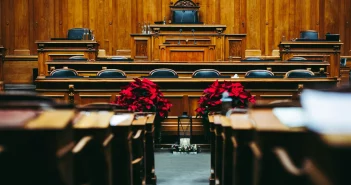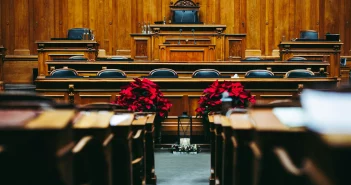Anyone watching the agonizing progress of the Julian Assange case proceeding through the U.K. justice system will be aware that it’s highly unlikely that any judge will simply throw open the gates of Belmarsh prison in assent to calls to ‘Free Assange’.
Sadly for those sympathetic to him, extradition has inched ever closer over the last three years thanks to High Court decisions: first overturning a lower court ruling that blocked extradition on the basis of suicide risk in 2021; next blocking an initial attempt to appeal in 2022; then blocking another appeal attempt in 2023.
Luke Sheehan interviews David Langwallner in our latest podcast on the Julian Assange case. He says Assange's fate suggests we are entering a new Dark Age.https://t.co/uMfLiurPrp#Assange #JulianAssange #FreeAssangeNOW #FreeAssange @Stella_Assange
— CassandraVoices (@VoicesCassandra) February 29, 2024
Assange has survived more than a decade of a bizarrely public seclusion and alleged U.S. security targeting that ranged from standard kidnapping and rendition to assassination, details of which were forbidden to be submitted this time round. Yet figures fighting or speaking up for him are not lightweight: more support from Australia where Prime Minister Anthony Albanese backed a parliamentary motion calling for his release in 2023, while his wife Stella has raged for the life of her besieged man like someone out of a Greek drama. Might there be a true reprieve?
On March 26 the High Court played the ball back to the Americans in a ruling that confirmed three out of nine questions of his imperilled rights: ‘that the applicant [Assange] is permitted to rely on the first amendment, that the applicant is not prejudiced at trial, including sentence, by reason of his nationality, that he is afforded the same first amendment protections as a United States citizen, and that the death penalty is not imposed.’
A response is due in three weeks. Had this ruling gone differently, Assange could have been on a plane within days.
It is worth mentioning here where – even were the death penalty threat to be muzzled – he may end up: the ‘supermax’ prison class where the US boxed up the likes of Ted Kaczynski, Zacarias Moussaoui and Ramzi Yousef.
An earlier legal concept that was applied to the question of blocking U.S. extradition demands the ‘Death row phenomenon,’ actually starts to look more humane when one itemizes the torture regime of prisons where inmates are slowly aged in isolation under observation without even the chance to kill themselves.
According to a former warden of the most secure such place, ADX in Colorado, it constitutes a ‘life after death… it’s much worse than death.’
For Stella Assange, speaking on the steps of the court, this ruling was at least a partial hint of genuinely positive momentum, a support for the notion that Assange might have rights after all. For others responding from around the world, the rejections of the six of the nine grounds formed part of the ominous, serpentine locomotion of the UK justice machine to eventually doom the Australian to that fate.
For Irish barrister and human rights specialist David Langwallner, who previously spoke to the Cassandra Voices podcast, the ruling gives a hint of a real path to appeal, and can be taken as a serious gesture from the judges. Speaking again informally to CV, he condemns the ongoing absurdity of a persecution that “should have ended long ago,” and lays out precedents like Soering Vs. United Kingdom.
Check David’s comments here:




